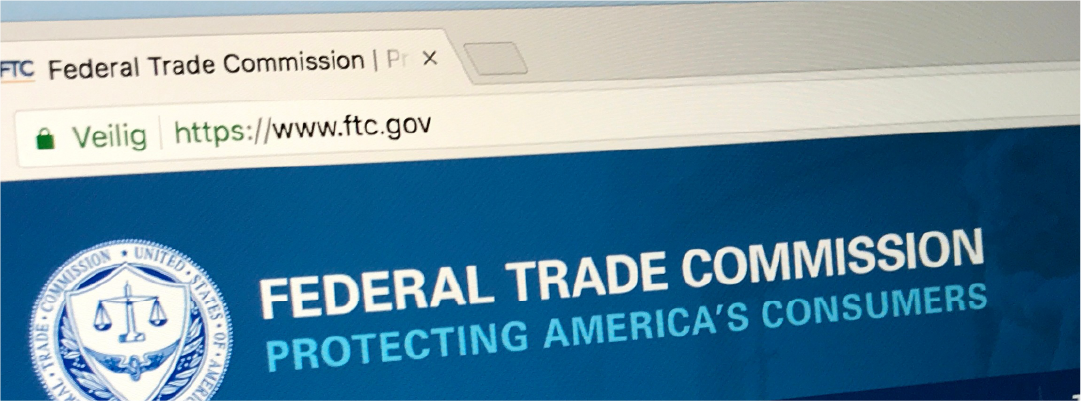OpenAI Under FTC Scrutiny: Implications Of The ChatGPT Probe

Table of Contents
The FTC's Concerns: Data Privacy and Algorithmic Bias in ChatGPT
The FTC's investigation into OpenAI centers around critical concerns regarding data privacy and algorithmic bias within ChatGPT. The commission is reportedly scrutinizing OpenAI's practices to determine whether they violate consumer protection laws. Specifically, the FTC is examining potential issues such as:
- Unfair data collection practices: Concerns exist regarding the extent and nature of data collected by ChatGPT, and whether users are adequately informed about this process. The volume of personal data processed and the potential for misuse are key elements under investigation.
- Potential biases in ChatGPT's outputs: Algorithmic bias, where AI systems reflect and amplify existing societal biases, is a significant concern. The FTC is likely investigating whether ChatGPT's responses exhibit discriminatory patterns based on race, gender, religion, or other protected characteristics. This includes evaluating the data used to train the model and the potential for perpetuating harmful stereotypes.
- Lack of transparency concerning data usage: OpenAI's transparency around data usage is under the microscope. The FTC is likely assessing whether the company provides sufficient information to users about how their data is collected, used, and protected. This includes evaluating the clarity and accessibility of OpenAI's privacy policies.
- Inadequate data security measures: The FTC will also be examining the security measures implemented by OpenAI to protect user data from unauthorized access, breaches, or misuse. Robust data protection measures are crucial, especially given the sensitive information potentially processed by ChatGPT.
The legal basis for the FTC's investigation likely stems from various consumer protection statutes, such as the FTC Act, which prohibits unfair or deceptive acts or practices. The FTC's investigation is ongoing, and official statements can be found on the FTC's website.
Impact on OpenAI's Operations and Future Development
The FTC investigation carries significant potential consequences for OpenAI. Depending on the findings, OpenAI could face substantial financial penalties, operational limitations, or mandated changes in its business practices. This "OpenAI Under FTC Scrutiny" situation could lead to:
- Increased development costs: Implementing more robust data security measures, improving algorithmic fairness, and enhancing transparency initiatives will require significant investment.
- Delays in product releases: The need to address the FTC's concerns might necessitate delays in the release of new features or updates for ChatGPT and other OpenAI projects. Thorough audits and internal reviews are likely to consume considerable time and resources.
- Changes in data handling strategies: OpenAI might need to revise its data collection and usage policies, implementing more stringent data minimization practices and enhancing user control over their data.
- Revised data privacy policies: OpenAI might be required to create more transparent and user-friendly privacy policies that fully disclose its data practices and provide more granular control over user data.
- Shifts in OpenAI's risk management and compliance strategies: The investigation will likely prompt a significant overhaul of OpenAI's risk management and compliance framework, to minimize future regulatory risks.
Implications for ChatGPT Users and the Broader AI Industry
The FTC's investigation into OpenAI has significant implications for both ChatGPT users and the broader AI industry. For users, this means:
- Increased user awareness of data privacy: The investigation is raising public awareness about the potential privacy risks associated with using AI-powered chatbots. Users are becoming more discerning about the data they share and the companies they trust.
- Changes in user terms of service: OpenAI may be compelled to significantly modify its terms of service, providing users with greater transparency and control over their data.
- Potential modifications to ChatGPT's functionality: Depending on the investigation's outcome, ChatGPT's functionality might be altered to mitigate identified biases or enhance data security.
The ripple effects extend beyond OpenAI. This investigation sets a precedent for the regulation of AI development. It highlights the need for responsible AI practices and may trigger similar investigations into other AI companies. The industry faces increasing pressure to prioritize data privacy, mitigate algorithmic bias, and foster transparency.
Navigating the Regulatory Landscape: Best Practices for AI Developers
The "OpenAI Under FTC Scrutiny" case underscores the critical need for AI developers to prioritize responsible AI development. Key best practices include:
- Implementing robust data privacy and security measures: This includes employing strong encryption techniques, implementing access controls, and regularly conducting security audits. Adherence to relevant data privacy regulations, like GDPR and CCPA, is essential.
- Mitigating algorithmic bias: Proactively addressing bias in AI systems requires careful selection of training data, ongoing bias detection, and algorithmic fairness techniques.
- Ensuring transparency: Open and clear communication with users regarding data collection, usage, and security practices is essential to building trust. User-friendly privacy policies that clearly articulate these practices are crucial.
- Proactive compliance with evolving regulations: Staying abreast of evolving AI regulations and implementing proactive compliance strategies is essential to avoid future regulatory conflicts.
Examples of responsible AI development include utilizing techniques like differential privacy to protect user data and employing fairness-aware algorithms during model training.
Conclusion: The Future of OpenAI and the Importance of Responsible AI Development
The OpenAI Under FTC Scrutiny situation is a watershed moment for the AI industry. The investigation's outcome will significantly influence the future of OpenAI, shaping its operations, product development, and approach to data privacy. Moreover, it highlights the paramount importance of responsible AI development, emphasizing the need for robust data privacy protection, bias mitigation, and transparency. OpenAI's FTC investigation serves as a critical reminder that proactive regulatory compliance is not merely a legal obligation but a vital component of building trustworthy and beneficial AI systems. Stay informed about the developments in the OpenAI's FTC investigation and advocate for responsible AI practices, including improvements in ChatGPT regulation and other similar AI technologies. The future of AI depends on it.

Featured Posts
-
 Kid Cudi Memorabilia Fetches High Price At Auction
May 16, 2025
Kid Cudi Memorabilia Fetches High Price At Auction
May 16, 2025 -
 Trumps Tariffs A 16 Billion Revenue Hit To California
May 16, 2025
Trumps Tariffs A 16 Billion Revenue Hit To California
May 16, 2025 -
 The Decline And Fall Of The King Of Davos A Historical Perspective
May 16, 2025
The Decline And Fall Of The King Of Davos A Historical Perspective
May 16, 2025 -
 20 Jaar Na Laatste Uitzending Jiskefet Ontvangt Ere Zilveren Nipkowschijf
May 16, 2025
20 Jaar Na Laatste Uitzending Jiskefet Ontvangt Ere Zilveren Nipkowschijf
May 16, 2025 -
 Did Jimmy Butler Need Help Against The Miami Heat
May 16, 2025
Did Jimmy Butler Need Help Against The Miami Heat
May 16, 2025
